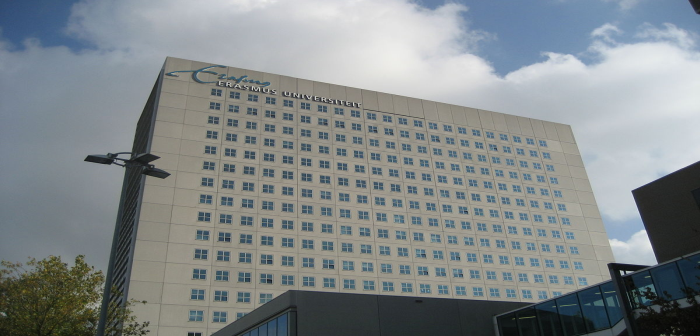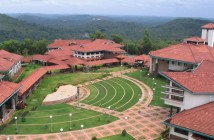The MSc Employment Report 2017 released by Rotterdam School of Management, Erasmus University (RSM) shows the graduates earned a mean salary in their first year of employment at €2,981 gross per month, slightly more than the previous year when the mean was €2,969.
Salaries range from €1,500 to €8,000 gross per month globally across all industry sectors. The employment survey was conducted in March 2017. Responses were received from 546 of the 1375 students who graduated between September 1, 2015, and September 30, 2016, giving a response rate of 39.7%, the school said.
Six months after graduation, the mean monthly salary paid by companies in the Netherlands was €2,800 gross. In EEA countries other than the Netherlands, the mean monthly salary was €3,537 and in non-EEA countries €3,048.
In the Netherlands, salaries follow a normal distribution with many respondents earning close to the average. In the rest of the EEA, and in non-EEA regions, an unequal distribution was seen, with more respondents in the lower and higher salary ranges, and a smaller proportion earning an average salary. The lowest salary reported was in Greece and the highest in Switzerland.
The top 15 employers were Deloitte, KPMG, EY, Accenture, PwC, Coolblue, ING, McKinsey & Company, Capgemini, AkzoNobel, Google, Bol.com, KPN, Rabobank, and Salesforce.
There were differences in mean salary for each specialised master programme. While no detailed conclusions could be drawn for every specialised master programme, respondents from the MSc Finance & Investments, Master in Management, and Supply Chain Management reported the highest mean salaries.
In some cases, the number of respondents from certain MSc specialisations or nationalities was too low to provide useful conclusions. Respondents came from 13 of RSM’s full-time MSc programs. The largest group of respondents was from the MSc Strategic Management (15%), MSc Business Information Management (14%), and MSc Finance & Investments (13%).
The response rates for three MSc programmes; Global Business & Sustainability, Human Resource Management, and Organisation Change & Consulting were too low to draw programme-specific conclusions.
Of the 546 graduates responding to the survey, 210 were female and 328 male. Eight respondents did not state their gender. The respondents comprised 47 nationalities of whom 61.1% were Dutch, 41.2 %t came from another country in the European Economic Area (EEA), and 9.3% came from outside the EEA.
Most international respondents came from Germany (11%), Greece (2.9%), and Hungary (2.4%) and 5.9% have more than one nationality.
A majority of 80.6 % were employed within 6 months of graduation (440 graduates out of 546). At the time of the survey, 2.9% had started their own business, 5.5% were doing an internship, 0.6% worked as freelancers, 1.3% continued their education with a PhD, and 1.8% continued education with a second master programme.
Of the remainder, 6% were still looking for employment and 1.3% were not seeking employment. Compared to last year there is a decrease of almost 3% in the number of graduates employed, but an increase in the percentage of graduates who started their own businesses continued their studies or are doing an internship.
Consultancy claimed 30% of the graduates followed by Financial services & Insurance at 18%. The top 15 employers were Deloitte, KPMG, EY, Accenture, PwC, Coolblue, ING, McKinsey & Company, Capgemini, AkzoNobel, Google, Bol.com, KPN, Rabobank, and Salesforce.
RSM graduates responding to this survey mostly work for large companies with 41% employed by multinational companies that have more than 10,000 employees
The graduates found jobs in 39 countries with 67.5% employed in the Netherlands, 28.7% elsewhere in Europe and 4.2% in other parts of the world.
Two-thirds (69%) of respondents with non-EEA passports stayed in the Netherlands after graduation, a huge increase over last year’s 33%. A very small number of non-EEA graduates, three in total, found jobs in other countries in Europe (Germany and Ireland). The majority of the graduates, 76%, found a job in their home country. Of the graduates originating from the EEA, 3% found a job outside Europe.
ALSO READ: INSEAD Professor comes up with collective action strategy
The percentage of entrepreneurs among the graduates registered a slight increase compared to the previous year. Most of the entrepreneurs studied the MSc Management of Innovation and MSc Strategic Management. The 3 % of respondents that founded their own companies totals 16 people. This is too small a group to make any conclusions about the entrepreneurship of this cohort of RSM graduates; 14 of them were Dutch and 2 were German. This entrepreneurial group consists of 12 men and 4 women.
Most of the entrepreneurial respondents, 60%, started their businesses during their studies. They all credit their own network as most important for helping them to start their own companies, followed by the help of former employers and RSM faculty.
Almost half of the employed MSc graduates from RSM, 45%, have a permanent contract. This is a fall of almost 7% compared to last year’s data. The second largest group, 36%, have a temporary contract with the possibility of a permanent contract in the future.(Image Source:Wikipedia.org)




